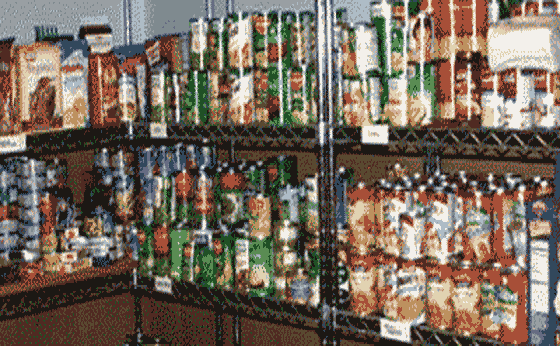4 Criteria For A Successful Survival Food Supply

Four thoughts for today regarding a successful food storage supply are the following:
Remember that variety is the spice of life, healthy foods maintain peak energy and immunity, the foods you like are the foods you will eat, don’t forget the water, and “having enough”.
Okay, that’s five – but I started with four… lists never seem to end… ;)
Variety Is The Spice Of Life
When building your food storage supply, DO NOT put all your eggs in one basket. By that I mean don’t simply go out and buy bags of beans and rice and call it good. Although most emergency food storage plans call for a hefty amount (proportion) of foods like rice and beans, it requires a good bit of thought to ensure that you include lots of variety of other foods.
Think about all the food groups, and the various packaging and processing options (boxed, canned, jarred, dehydrated, freeze-dried, etc.). Diversify. Also pay special attention to spices and condiments – the things you add to food for taste. Don’t forget the deserts, sweets, and drink mixes, as these are ‘happy’ foods which could ease hard times during disaster.
Healthy Foods Maintain Peak Energy And Immunity
You shouldn’t rely solely on cases of SPAM getting you through a period of disaster (as an example), the same as you shouldn’t count solely on jars of peanut butter to provide your caloric needs. Sure, they’re loaded with calories but the overall nutritional value isn’t there to stand on its own over time.
The healthy food concept sort of goes hand in hand with having a variety of foods, to balance out your nutritional needs. Consider including lots of vegetables for example (and the ability to grow them!). Canned, dehydrated, and freeze-dried are all acceptable and easy ways to maintain longer term storage of nutritional foods. Keep a supply of multivitamins too. Keeping your body healthy and your immune system charged is essential during times of disaster and stress.
The Foods You Like Are The Foods You Will Eat
While considering your variety of emergency food, it’s probably best to focus on foods that you like to eat — because you probably won’t eat them and rotate them if you buy things that you don’t normally eat. I do recommend though that if you currently do not consume grains (which store very well) – then you should consider incorporating them into your diet (and learn how to use them).
It is important to ROTATE your food storage so that your foods will not eventually spoil. In other words, don’t just buy all of your extra food and store it away and forget about it. Instead, get in the habit of eating from storage, replacing and rotating it. Rotate so that you’re eating the oldest first, which will optimize your food storage.
Having said that, a major caveat is all of the purposely stored foods specifically intended for long-term storage such as 5-gallon buckets of grains, rice, beans, etc., stored in Mylar bags with oxygen absorbers to last many many years… You may have other long-term food supplies too, but my point is that you should also concentrate on rotating your inventory as best you can.
Don’t Forget The Water
There are a lots of people who have a decent food storage but are forgetting about water. I suppose you have an excuse if you’re near a natural water source and have the means to go get it, bring it back home (8-pounds per gallon), and filter and purify it.
However for those who are not within walking distance of natural water – you NEED to store water too. You will die first from lack of water (in about 3 – 5 days). At a minimum, plan on 1-gallon per day per person.
Having Enough
How much food storage do you need? How much until you feel comfortable? This will vary widely among people depending on one’s own interpretation and realization of the risks we face in today’s world. With that said, it is easy to build up long term food storage and it is great life insurance to have.
Personally I believe that a 3-month supply is totally doable while at the same time it is within reach of most everyone to easily procure a 1-year supply. It’s not terribly expensive when compared to other ‘luxuries’ that we spend on ourselves… Don’t stop at a few weeks or a month’s worth of food storage. Keep going!
